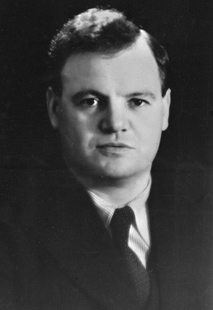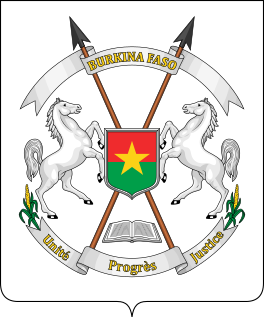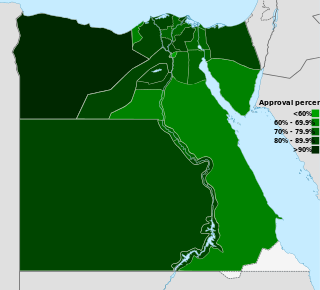Mixed-member proportional (MMP) representation is a mixed electoral system in which voters get two votes: one to decide the representative for their single-seat constituency, and one for a political party. Seats in the legislature are filled firstly by the successful constituency candidates, and secondly, by party candidates based on the percentage of nationwide or region-wide votes that each party received. The constituency representatives are elected using first-past-the-post voting (FPTP) or another plurality/majoritarian system. The nationwide or region-wide party representatives are, in most jurisdictions, drawn from published party lists, similar to party-list proportional representation. To gain a nationwide representative, parties may be required to achieve a minimum number of constituency candidates, a minimum percentage of the nationwide party vote, or both.

The Socialist Party is a left-wing, democratic socialist political party in the Netherlands.

The Hungarian Workers' Party is a communist party in Hungary led by Gyula Thürmer. Established after the fall of the communist Hungarian People's Republic, the party has yet to win a seat in the Hungarian parliament. Until May 2009 it was a member of the Party of the European Left.

Elections in Benin take place within the framework of a multi-party democracy and a presidential system. Both the President and the National Assembly are directly elected by voters, with elections organised by the Autonomous National Electoral Commission (CENA).

Elections in the Comoros take place within the framework of a multi-party democracy and a presidential system. The President and the majority of the seats in the Assembly of the Union are directly elected.

Elections in Egypt are held for the President and a unicameral legislature. The President of Egypt is elected for a four-year term by popular vote.

Elections in Niger take place within the framework of a semi-presidential system. The President and National Assembly are elected by the public, with elections organised by the Independent National Electoral Commission (CENI).

Elections in Rwanda take place within the framework of a multi-party democracy and a presidential system. The President and majority of members of the Chamber of Deputies are directly elected, whilst the Senate is indirectly elected and partly appointed.
The Comorian Union for Progress is a political party in the Comoros.

Legislative elections were held in France on 21 October 1945 to elect a Constituent Assembly to draft a constitution for a Fourth French Republic. 79.83% of voters participated. Women and soldiers were allowed to vote. 522 seats were elected through proportional representation.
Early parliamentary elections were held in Albania on 29 June 1997 alongside a simultaneous referendum on restoring the monarchy, with a second round of voting for 32 seats on 6 July. The elections were called as a response to the 1997 Pyramid Crisis. The result was an overwhelming victory for the opposition Socialist Party of Albania, which won 101 of the 151 seats. Voter turnout was 72.6%.

Parliamentary elections were held in Somalia on 30 December 1979.

Parliamentary elections were held in the Republic of Upper Volta on 30 April 1978. They followed a constitutional referendum the previous year, which came about as a result of the military coup in 1974. Eight parties and 367 candidates contested the election.
Parliamentary elections were held in Morocco on 25 June 1993, having originally been scheduled for October 1990, but postponed due to issues over the future of Western Sahara and a referendum on a new constitution, which took place in 1992. The number of directly elected seats increased from 204 to 222, whilst the number of indirectly elected seats rose from 102 to 111. The indirectly elected seats were chosen on 17 September.
Early parliamentary elections were held in Egypt on 7 June 1979, with a second round for 147 seats being held on 14 June. Following the experimental 1976 elections, in which three different factions of the Arab Socialist Union had competed against each other, the country had returned to multi-party politics. This was confirmed in a referendum on the formation of new parties held in April.
Parliamentary elections were held in Egypt on 27 May 1984. Since the last election in 1979, changes had been made to the electoral system. The 176 two-member constituencies were replaced by 48 multi-member constituencies, with candidates elected on a party list system, with a party needing over 8% of the vote to win a seat.
Early parliamentary elections were held in Egypt on 29 November 1990, with a second round for 261 seats on 6 December. They followed a referendum in October on the early dissolution of Parliament due to issues surrounding the legality of the 1987 elections. However, the elections were boycotted by the Socialist Labour Party (SLP), the Liberal Socialists Party (LSP) and the New Wafd Party, which claimed that the reformed Electoral Law would fail to ensure free elections.

A constitutional referendum was held in Egypt on 19 March 2011, following the 2011 Egyptian revolution. More than 14 million (77%) were in favour, while around 4 million (23%) opposed the changes; 41% of 45 million eligible voters turned out to vote.
A four-part referendum was held in Hungary on 26 November 1989. Voters were asked whether the President should be elected after parliamentary elections, whether organisations related to the Hungarian Socialist Workers' Party should be banned from workplaces, whether the party should account for properties owned or managed by it, and whether the Workers' Militia should be dissolved. All four proposals were passed, the first narrowly by 50.1% of voters, and the remaining three by 95% of voters. Voter turnout was 58.0%.

A referendum on the electoral law was held in Italy on 18 April 1999. Voters were asked whether they approved of replacing the mixed-member proportional representation electoral system with one based solely on single-member constituencies, with the 25% of seats instead allocated to the second-placed in the constituencies with the most votes. The proposal was supported by larger parties, but opposed by smaller ones. Although the proposal was approved by 91.5% of voters, turnout was only 49.6%, resulting in the referendum being invalidated as the threshold of 50% was not passed.
















